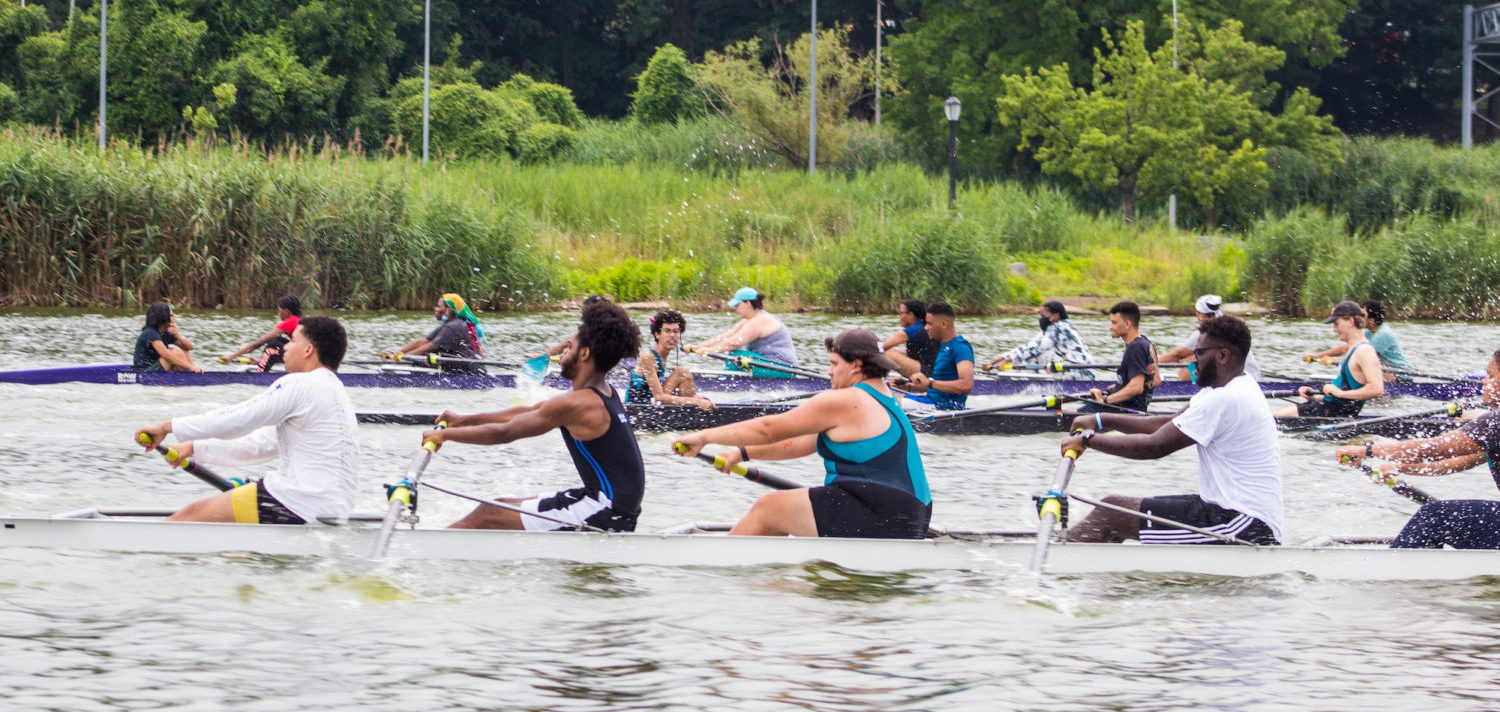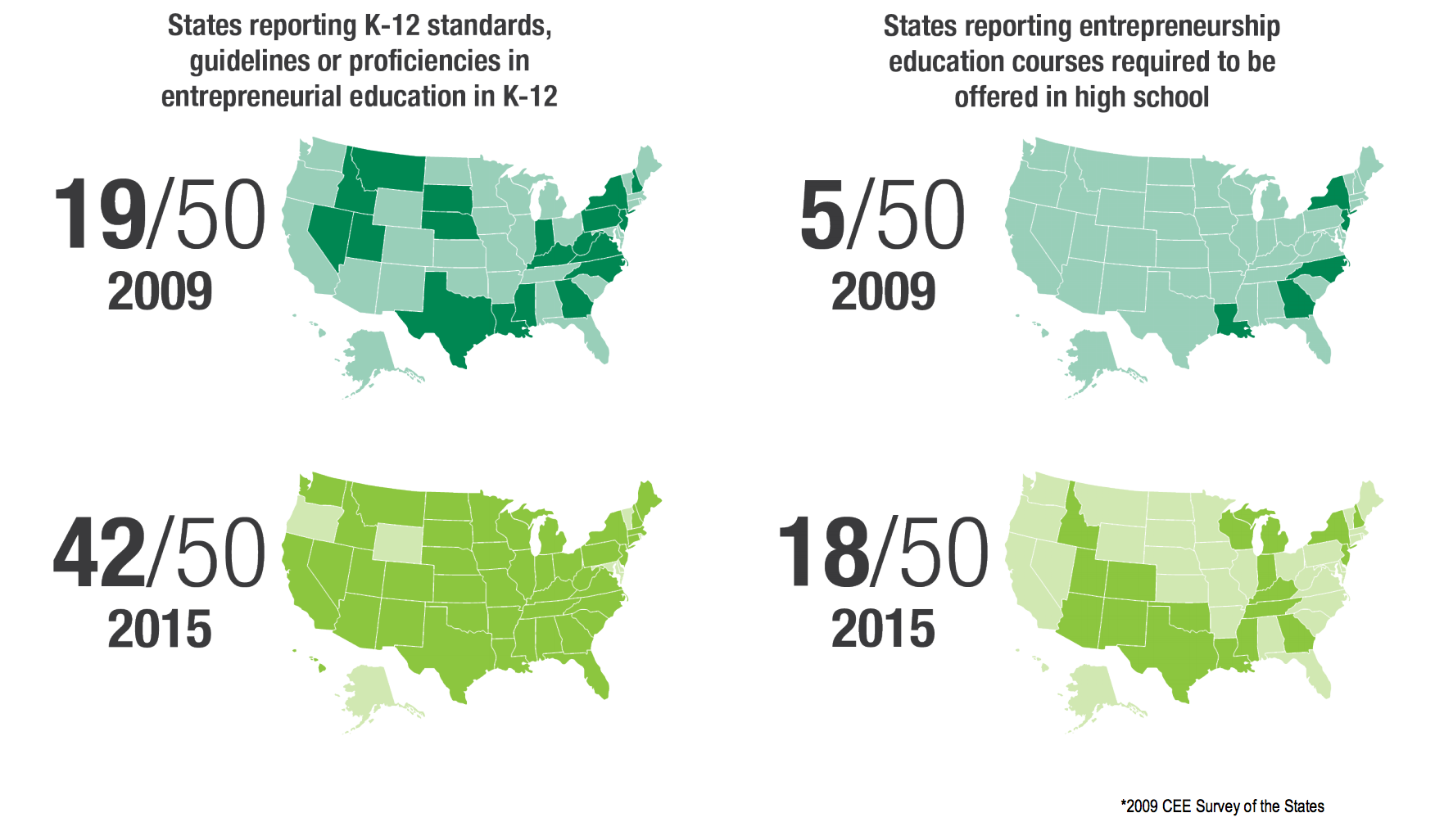by Ruby Lyon
For many people, starting their own company is a dream. However, becoming an entrepreneur can often feel daunting, and when you are in middle school, keeping a balanced budget can feel even harder. If being an entrepreneur isn’t the right fit, then what are steps to become a web designer, food scientist, social worker, or a park ranger?
To answer these tough questions, Row New York academic staff are getting the creative juices flowing. Throughout January and February, middle and high school athletes are digging into the topic of financial literacy, designed by the fun-loving Junior Achievement program. Junior Achievement provides a new and creative way to get students talking about subjects beyond budgets, savings, and spending accounts. Already halfway through the six-week series, we’ve seen some wacky business ideas in the Be Entrepreneurial program for high schoolers, and some big career goals from the middle school Economics for Success curriculum.
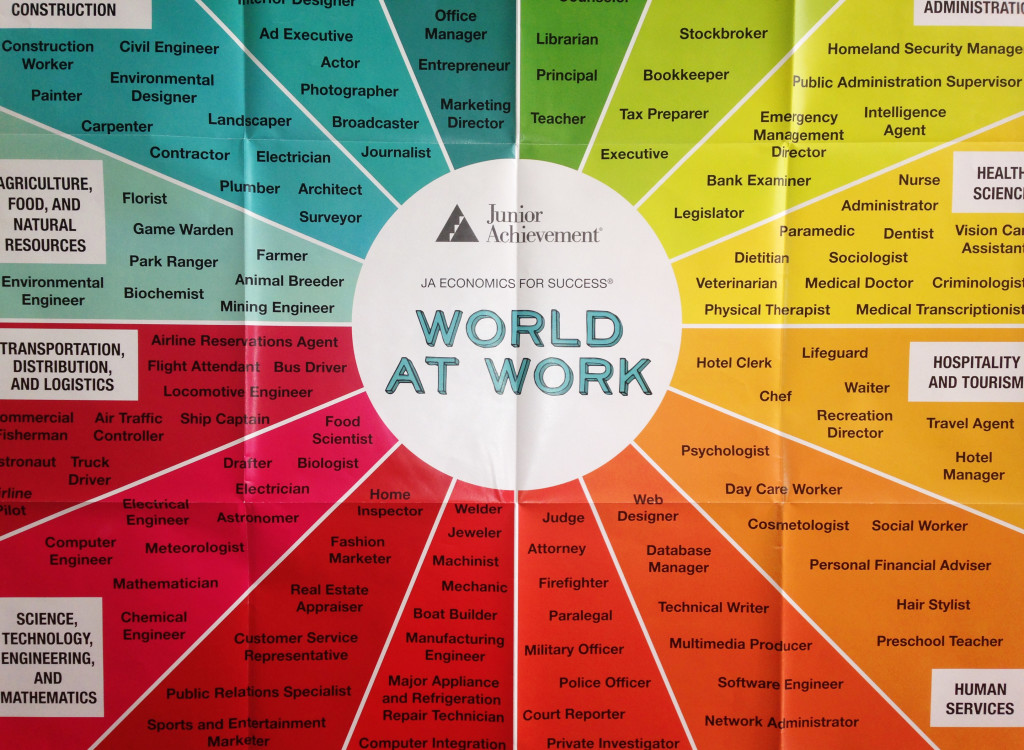
Show of hands – how many us knew about credit, opportunity cost, and gross income in middle school? That might sound a little far-fetched, but it’s all a part of what our seventh and eighth graders are exploring in Economics for Success. At the core of the program is an emphasis on self-awareness; an important social-emotional ability. By using a variety of games and activities, students investigate their skills, interests, values, and the world of work to make informed education, career, and life decisions. Below, Row New York’s Akeelya McKenzie, Executive Assistant and Youth Engagement Specialist, shares how students respond to career questions and playing the “Be a Success” board game (a new take on the traditional Game of Life):
This month we asked tough questions: What do you want to do? What career do you want to pursue in the future? What do you know about managing money? I expected sweating, mumbling, a little resistance. Mostly, I received wholehearted participation, making it easy to coax information out of the girls. Do you know each week an aspiring professional wrestler comes to tutoring? Two of our students want to be crime scene investigators, and no matter how many times I asked “Really?,” they responded “Yes!” through their giggles. Several already have a dream college they want to attend. Their enthusiasm for playing the Be a Success board game cannot be tempered by their disastrous board game skills. They completely understand why they would lose ten points for coming into work late, and gain 20 points for studying for an extra hour in the library, and desperately want the 200 points from earning a Master’s degree. As for budgeting? Most already have a saving system in place, and one student would use her imaginary money for art supplies she needs to continue earning money from commissioned art projects and to buy the things she wants. Bottom line: The first Row New York/Junior Achievement collaboration was a success, and reinforces that our participants are interesting, adaptable, and full of surprises!
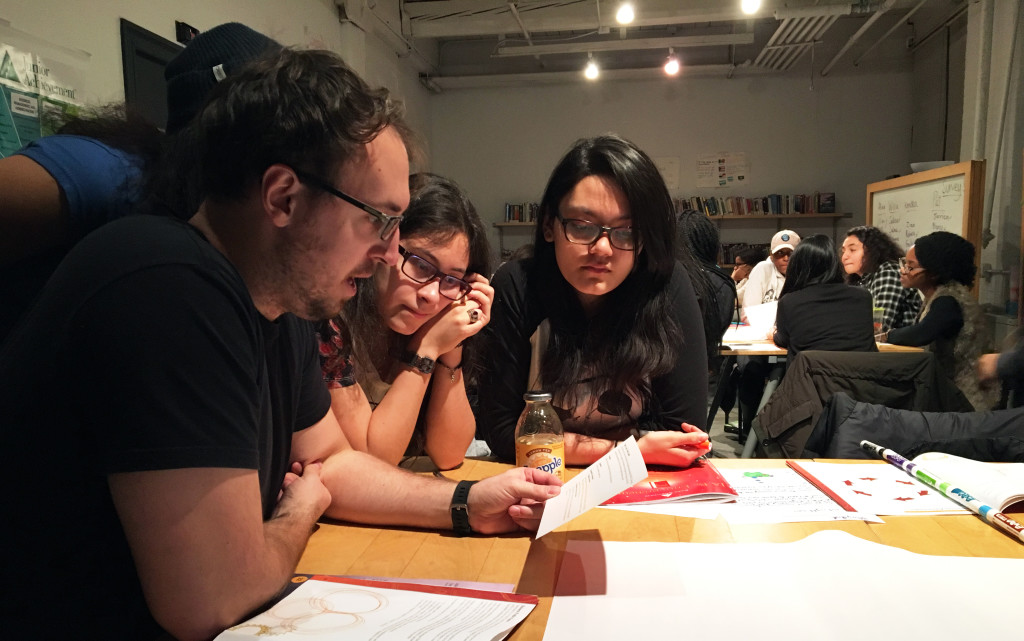
It’s possible that some of us may have explored career options and the world of credit in middle school, but what about product design and business plans in high school? Over a seven-part lesson plan, Row New York’s athletes are creating their own entrepreneurial ventures. We are talking customers, competitive advantages, ethics, supply and demand, and catering to different demographics. Although the primary emphasis is entrepreneurship, the program sneaks in mathematics, reading, and writing skills. We’ve seen students cover a wide variety of dream companies, including opening a bakery, helping the homeless, developing flying cars, opening a private neurology practice, and creating better solar panels. We like to dream big at Row New York.
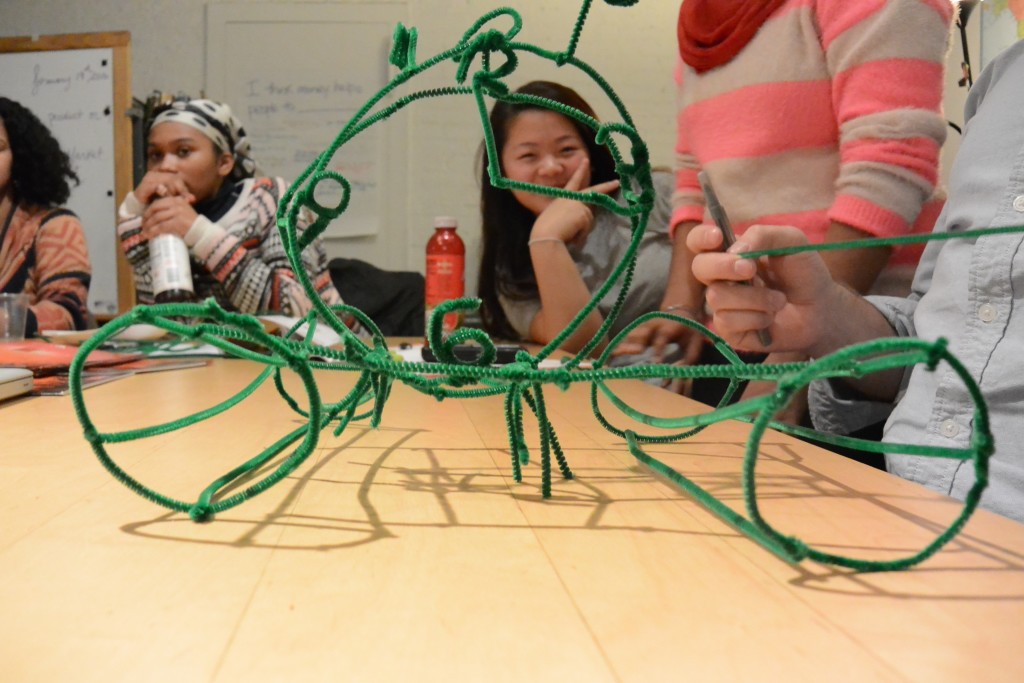
A common emerging theme is the realization that being an entrepreneur is not an exclusive activity. Regina De Los Santos, Row New York’s Academic Program Manager, has noticed that high school students have, “made a connection of being able to make money off of something they are really good at…like braiding hair or baking cookies.” She’s not the only one piecing this together.
“Before Junior Achievement, I thought of my future kind of differently. I always thought that business and companies were very complex. After Junior Achievement, I realized that a business can be made from anything and can consist of anything.” – Nowrin, Queens novice member
Other students have experienced a sense of empowerment:
“Junior Achievement has changed [how I think about my future] – instead of just getting a job, I can be the boss.” – Jon, Manhattan novice member
Similar to the middle school programming, Be Entrepreneurial is structured around competitive and engaging activities. One day students are developing their own commercials, using wacky voices and stellar acting, and another day they are designing innovative concept products with pipe cleaners. In Manhattan, two members of the novice team have come up with an idea that rowers can get behind. Their concept phone app syncs up to an individual’s erg. As a social platform, it then searches for other users, and creates an online ranking system. Rowers will never again be lonely on the erg, and now have an extra incentive to push harder.
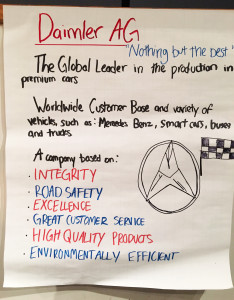
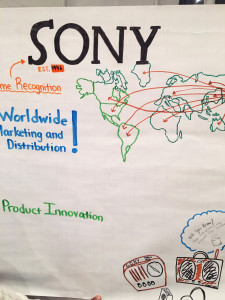
By allowing our students to be creative and think independently, they are developing the skills to go out into the real world and confidently forge their own paths. They’re not only ready with career ideas, but also possess the basic financial literacy skills to be economically successful. We recently asked our students the following question: Before you started Junior Achievement how did you think about your future? Has Junior Achievement changed this? Silas, a Manhattan novice rower summarizes the experience spot on:
“I thought it [my future] was going to go well. Now I think it’s going to be awesome.”
A big shout out and thank you to Paul DeGregorio, a member of Row New York’s Young Executive Board, who helped set up our partnership with Junior Achievement!
Lastly, we leave you with a map to ponder. In 2015, Junior Achievement reviewed US states’ entrepreneurial education requirements. The good news? There have been substantial gains in K-12 entrepreneurial education efforts. We hope to see these trends to continue!
Source: http://bit.ly/1PN4Jko


